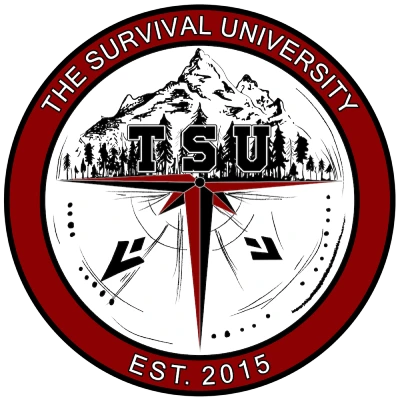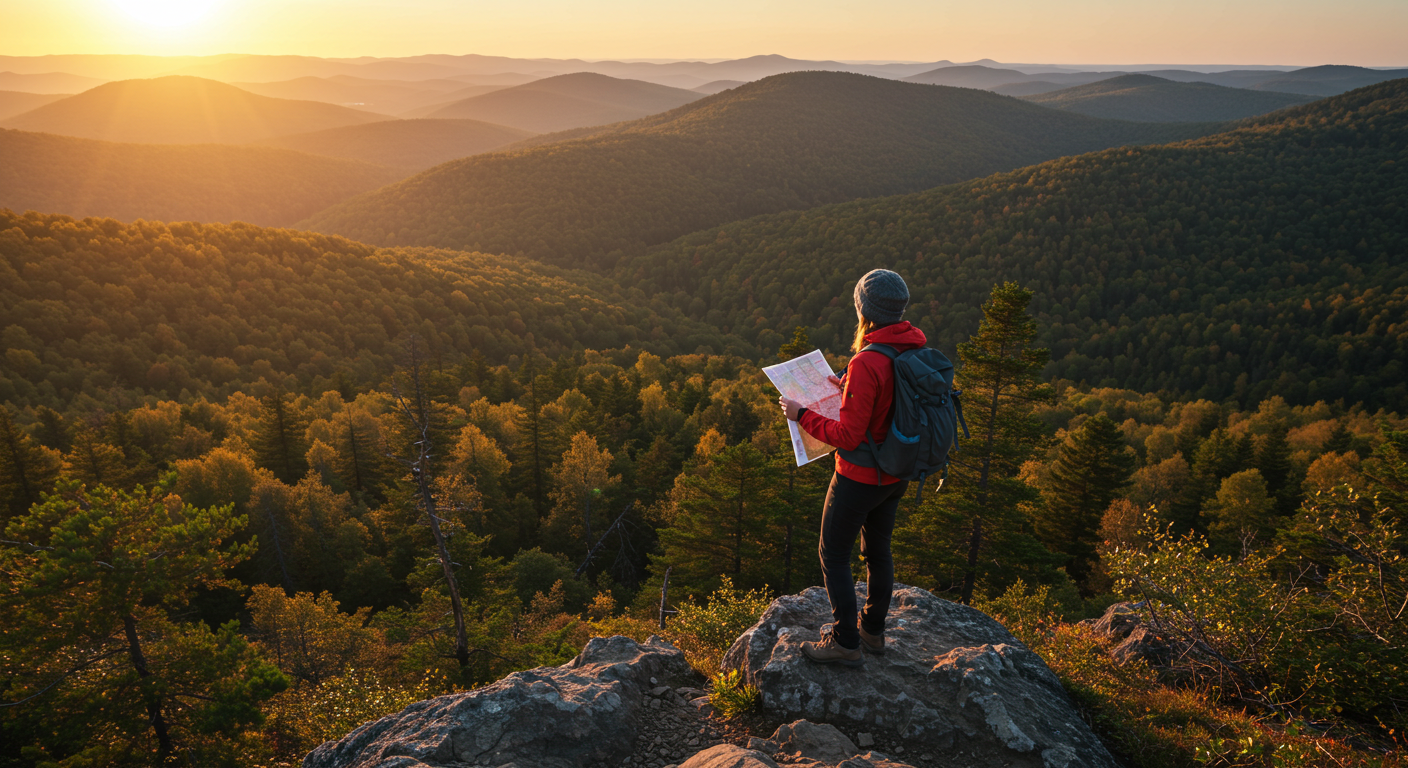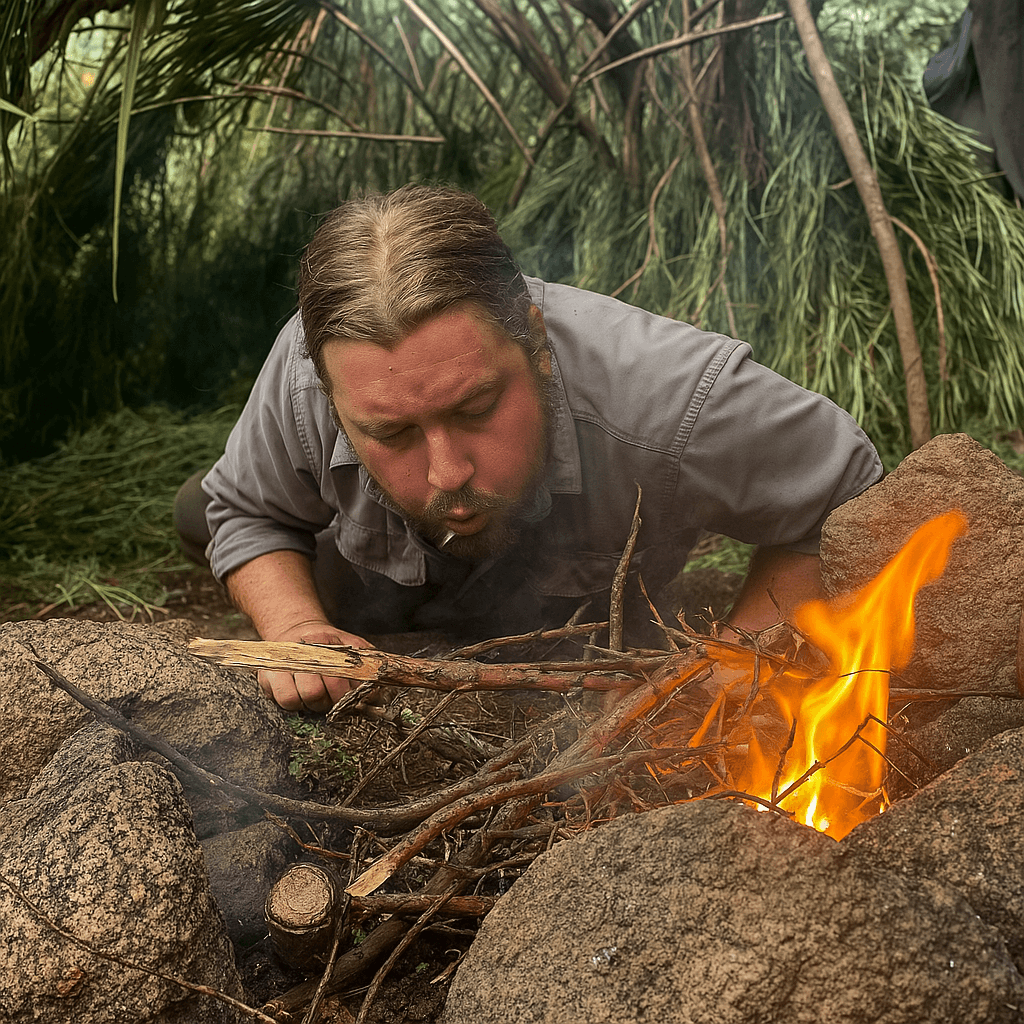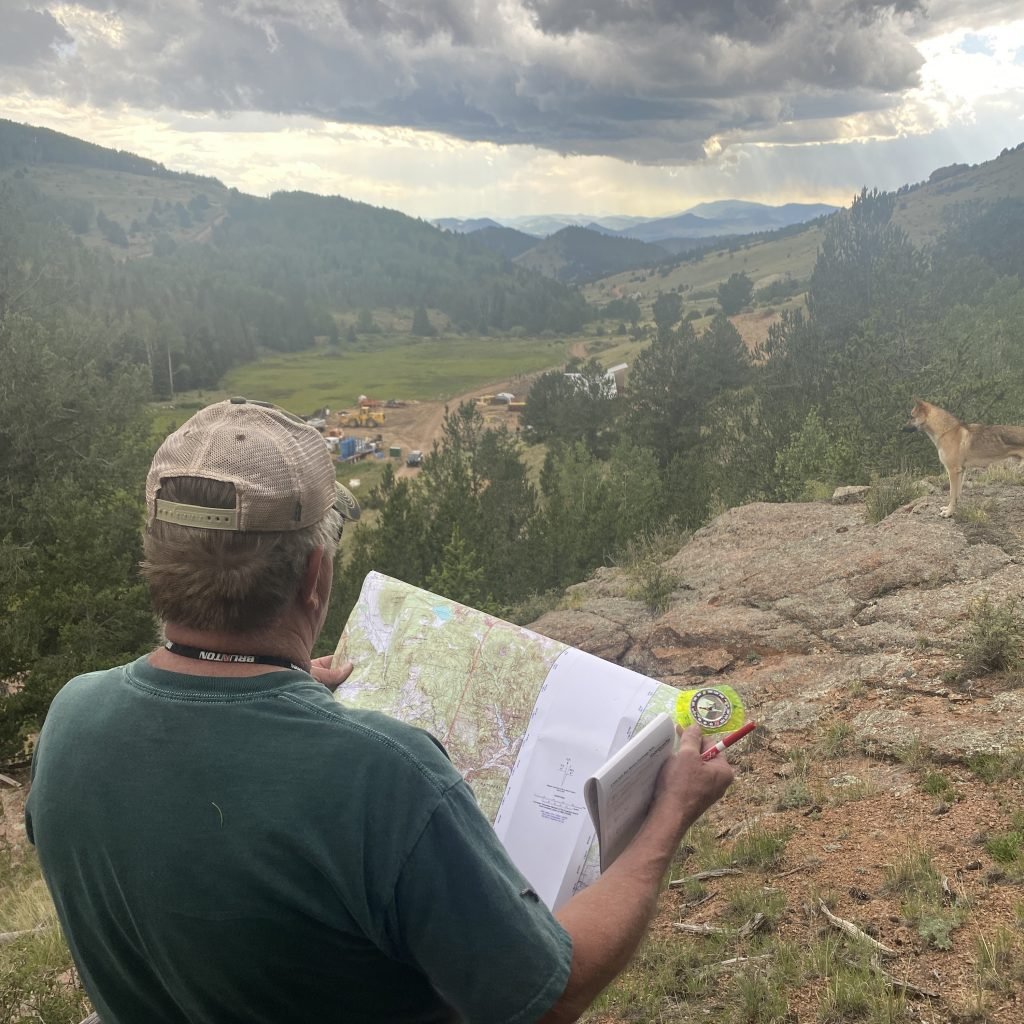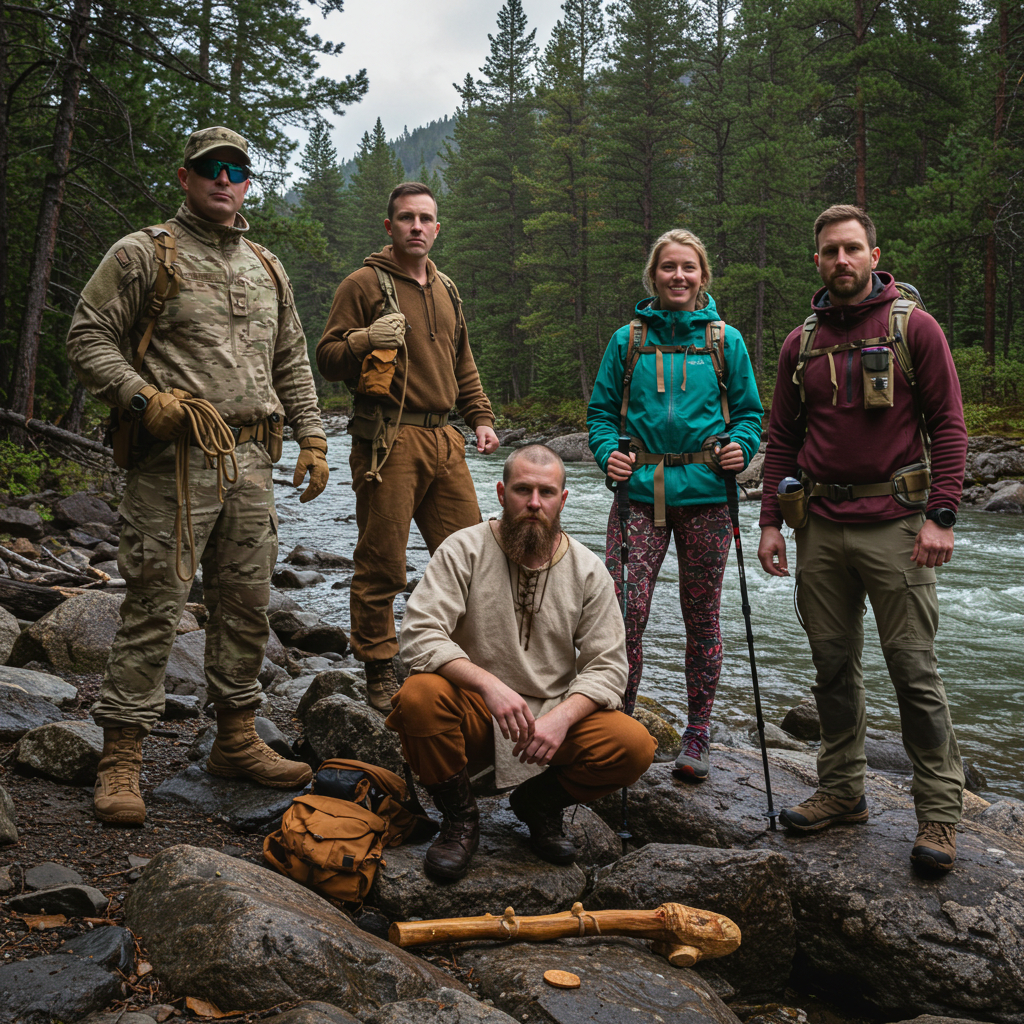Cart
11 min read
Navigation Skills vs. Orienteering & Geocaching: Why Real-World Navigation Matters
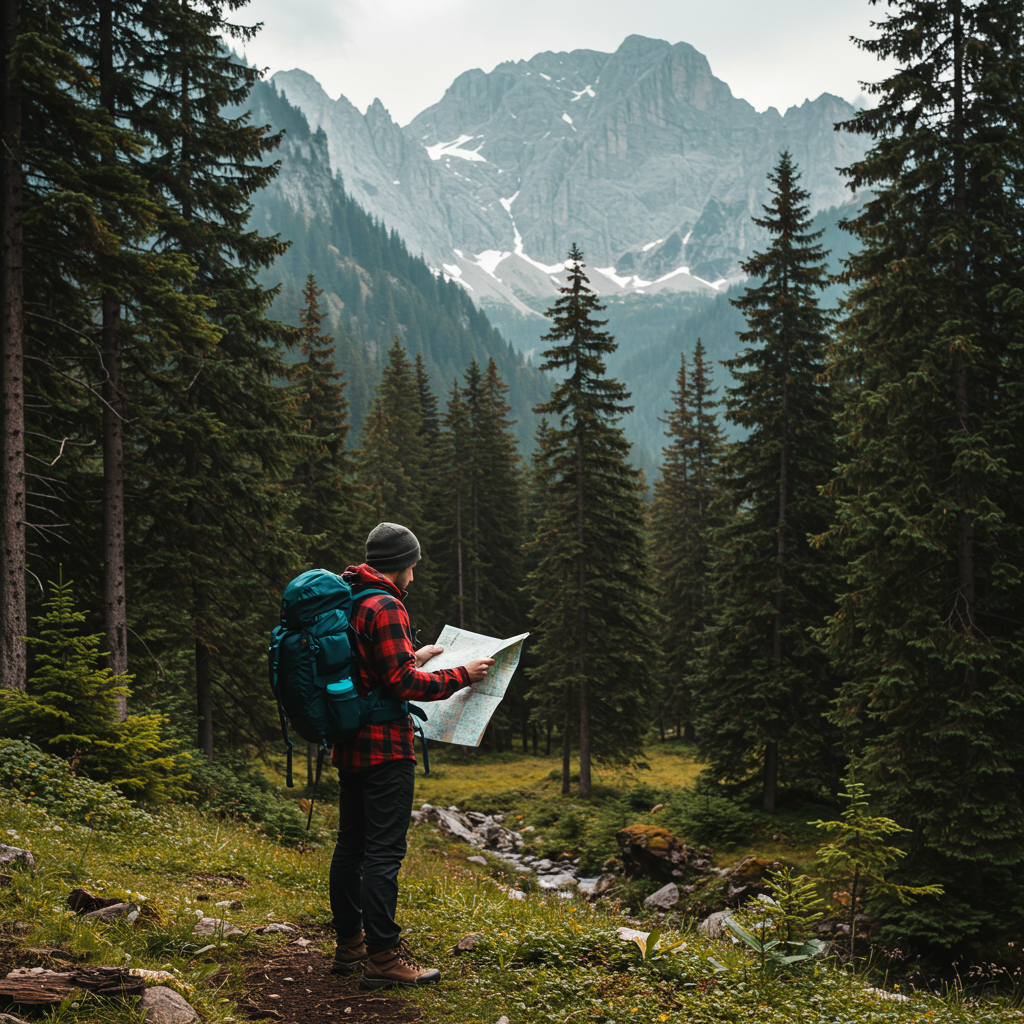
Navigation: More Than Just a Game – How Orienteering, Geocaching, and Real-World Skills Intersect
Have you ever been deep in the woods with just a map and compass, feeling like a modern-day explorer charting unknown territory? Or maybe you’ve spent a Saturday afternoon racing through trails, hitting checkpoints in an orienteering course, or hunting down a hidden geocache with a GPS. Navigation is a fascinating skill, blending adventure, sport, and survival into one.
But here’s the thing—while orienteering and geocaching make for great weekend fun, true navigation is a skill that goes far beyond just playing a game. It’s a skill that’s essential for outdoor adventurers, military personnel, and search and rescue (SAR) teams. At The Survival University (TSU), we don’t just teach navigation as a hobby—we train people to master it as a life-saving skill.
Orienteering: The Sport of Navigation
Orienteering is essentially a competitive form of land navigation. Participants use a detailed map and compass to navigate from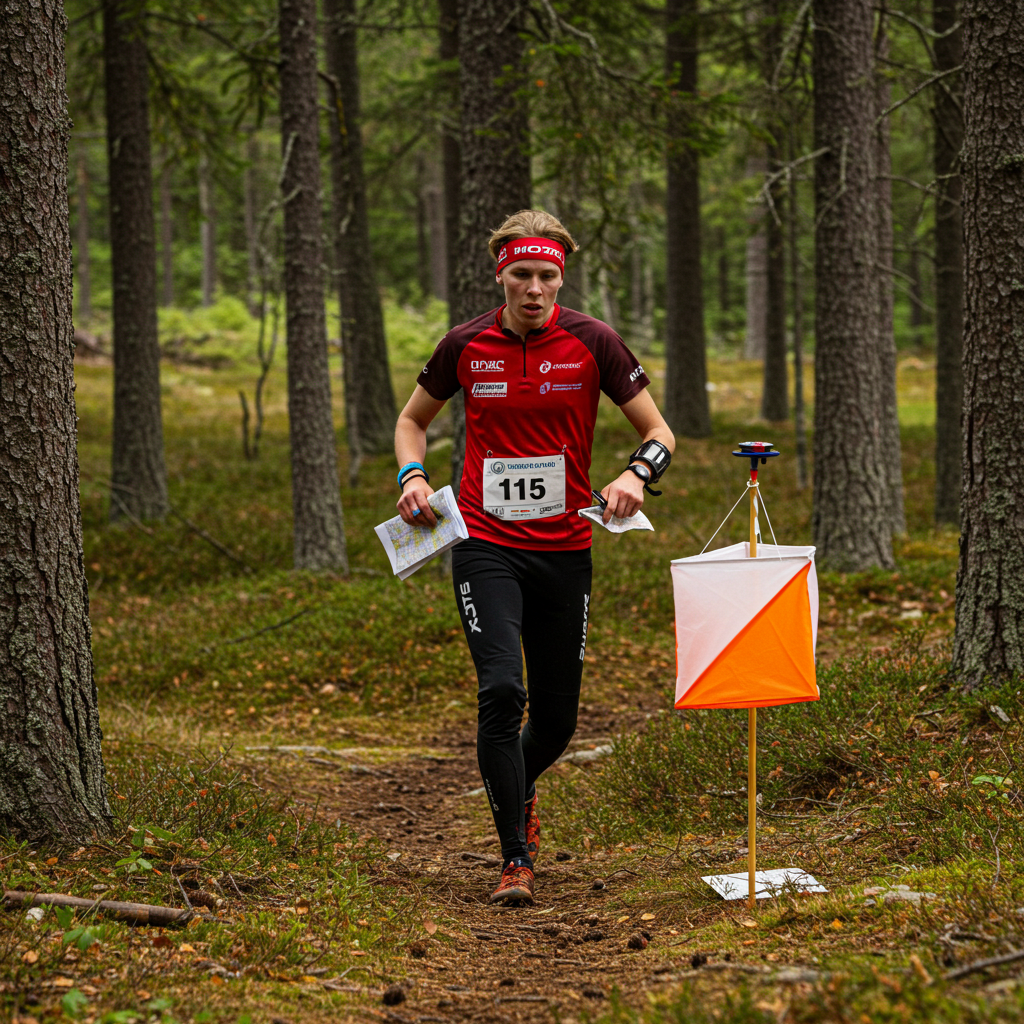 point to point in diverse terrain, racing against the clock to reach all the checkpoints in the shortest time. It’s a fantastic sport for those who love the outdoors, puzzles, and physical endurance.
point to point in diverse terrain, racing against the clock to reach all the checkpoints in the shortest time. It’s a fantastic sport for those who love the outdoors, puzzles, and physical endurance.
Some people mistake orienteering for real-world navigation, but here’s where things get interesting. I once got into a debate with someone who insisted that only the military uses “navigation” and that adventurers use “orienteering” to find their way. I had to break it down for them: orienteering is a game based on navigation, but real-world navigation is a necessity for survival. Whether you’re in the mountains on a backcountry trek, serving in the military, or searching for a lost hiker in a SAR operation, knowing how to read a map and use a compass isn’t just for fun—it’s a critical skill that could save your life.
That said, if you enjoy orienteering, there’s a way to take your skills to the next level—one that might just put you ahead of the competition.
How TSU Took an Orienteering Team from Second Place to First
We once had a highly competitive orienteering team come through our courses. They were a skilled, well-practiced group who had 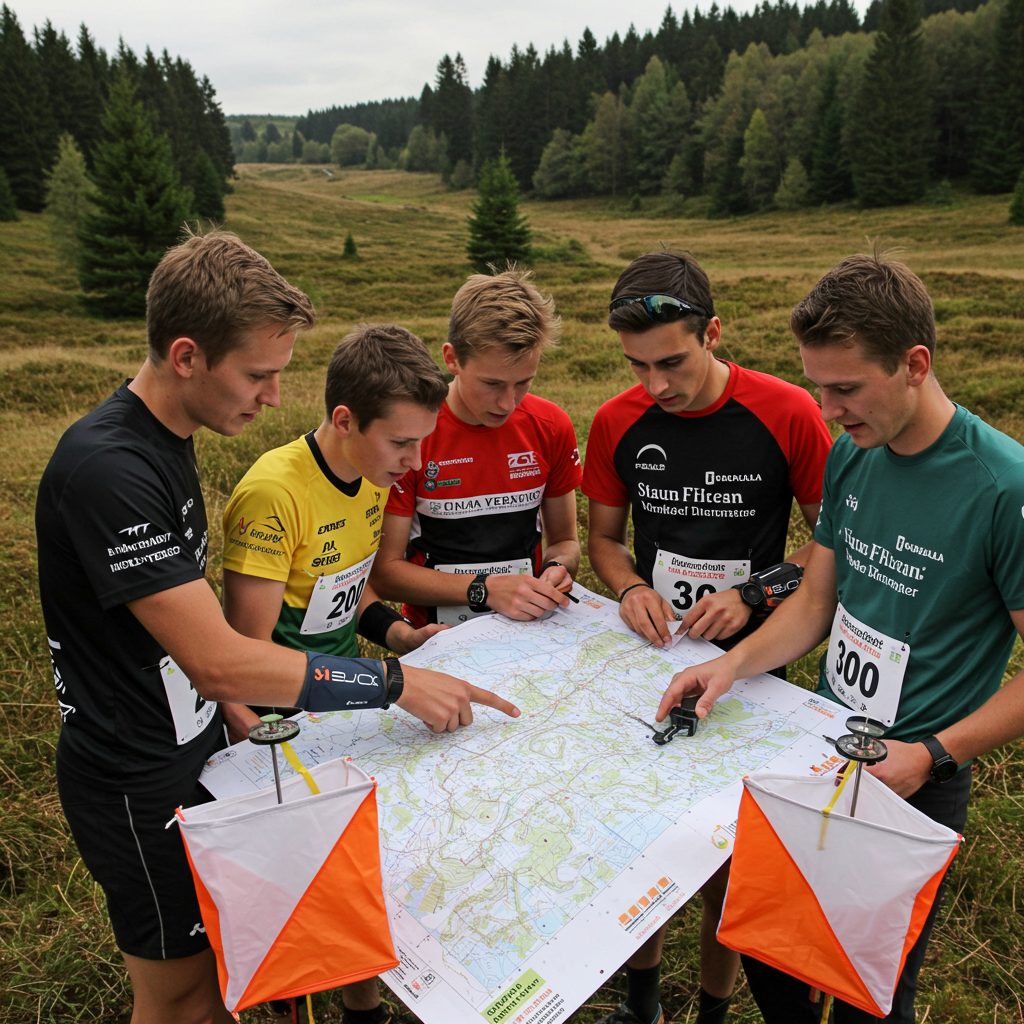 spent years refining their speed and efficiency on the course. Yet, despite their dedication, they consistently placed second in their events, always just a step behind the top spot. No matter how much they trained, there was always one team that edged them out—until their leader decided to look beyond traditional orienteering strategies. Determined to close the gap, they enrolled in both our Basic and Advanced Navigation Courses at TSU, pushing their understanding of navigation beyond the structured world of competitive racing. The very next year? They won first place.
spent years refining their speed and efficiency on the course. Yet, despite their dedication, they consistently placed second in their events, always just a step behind the top spot. No matter how much they trained, there was always one team that edged them out—until their leader decided to look beyond traditional orienteering strategies. Determined to close the gap, they enrolled in both our Basic and Advanced Navigation Courses at TSU, pushing their understanding of navigation beyond the structured world of competitive racing. The very next year? They won first place.
So, what changed? At TSU, we don’t just teach students how to follow a course—we teach them how to truly understand the land. Our training goes beyond memorizing symbols on a map or following a set of waypoints. We drill terrain association, contour line interpretation, declination adjustments, and real-world obstacle navigation, ensuring our students develop a deep, instinctive understanding of the environment. Unlike a well-marked racecourse, true navigation requires adapting to the unexpected—crossing uncharted terrain, choosing the best route on the fly, and making critical adjustments when conditions change. That’s exactly what this team learned, and it gave them the edge they needed to move from second place to first.
But the lessons they learned weren’t just for competition. Precision navigation is a skill that transcends sport, applying to anyone who ventures into the wilderness, whether it’s for adventure, exploration, or survival.
Geocaching and Navigation: More Than Just Following the GPS
Geocaching is a fun and engaging way to explore the outdoors, turning navigation into a global treasure hunt where participants use GPS coordinates to track down hidden caches. It’s a great activity for families, outdoor enthusiasts, and anyone looking to add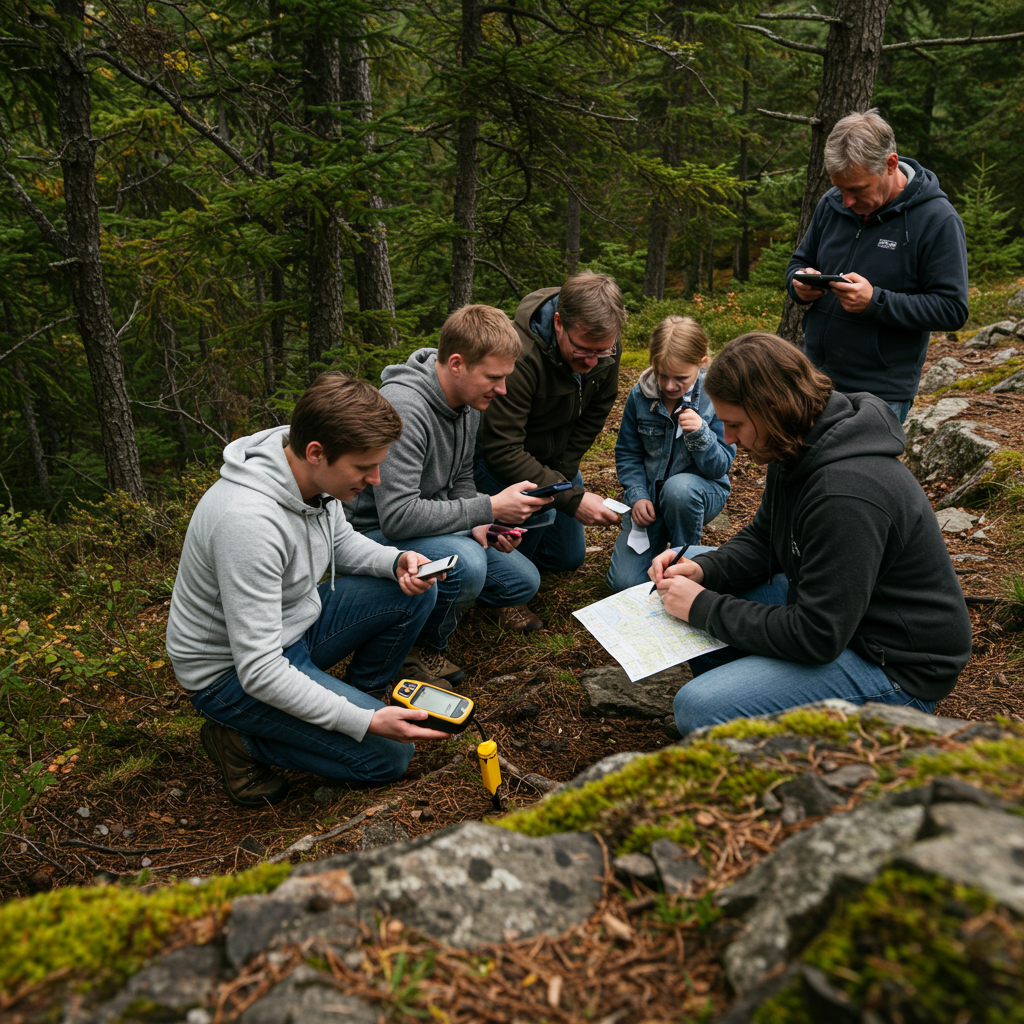 a sense of adventure to their hikes. Beyond the thrill of the hunt, geocaching is also an excellent introduction to basic map-reading and wayfinding, especially for kids and beginners. But here’s the thing—just like orienteering, geocaching is only as easy as the technology allows. When you step beyond urban parks and well-marked trails, GPS alone isn’t always enough.
a sense of adventure to their hikes. Beyond the thrill of the hunt, geocaching is also an excellent introduction to basic map-reading and wayfinding, especially for kids and beginners. But here’s the thing—just like orienteering, geocaching is only as easy as the technology allows. When you step beyond urban parks and well-marked trails, GPS alone isn’t always enough.
Ever found yourself geocaching in dense forests, deep canyons, or remote areas where GPS signals are weak? Or maybe you’ve followed the coordinates exactly, only to realize they don’t quite match up with the terrain? That’s where real navigation skills separate casual geocachers from those who truly understand how to read the land. Knowing how to use a compass, measure distance with pace count, and apply terrain association allows you to navigate with accuracy—no matter how unreliable your GPS might be. Instead of wasting time aimlessly searching in the wrong spot, you can pinpoint your target efficiently and with confidence.
How Our Courses Can Help You Master Navigation
(and Win at the Game)
At TSU, we run two in-depth navigation courses each year—one in May and one in July. These aren’t your average “follow-the-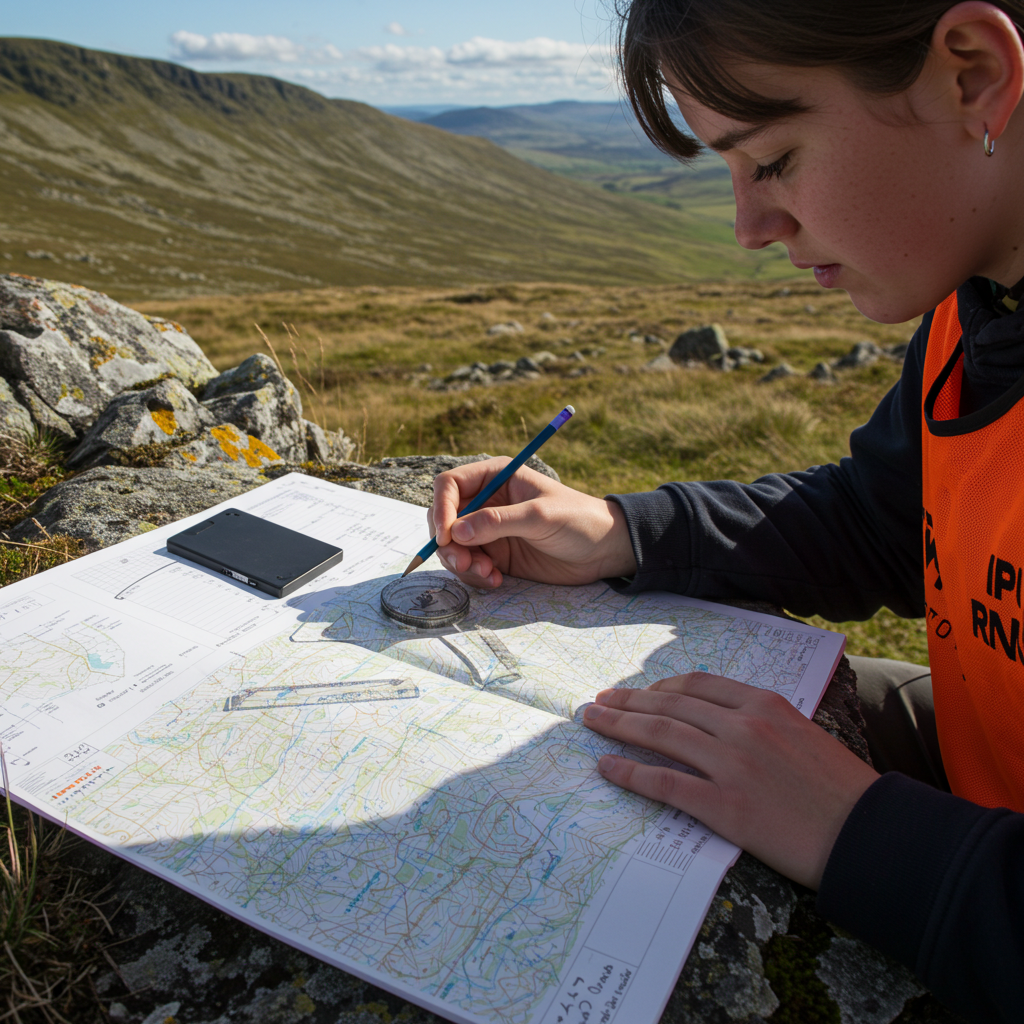 map” classes. We offer real-world training that’s been used by military personnel, search and rescue teams, and, yes, even competitive orienteering teams.
map” classes. We offer real-world training that’s been used by military personnel, search and rescue teams, and, yes, even competitive orienteering teams.
Where We Teach:
- Mountain Location (3-Day Standard Navigation Course) – A 1,000-acre valley designed for beginners and intermediate navigators. Here, we teach the fundamentals of navigation, from reading topographic maps to using a compass in dense terrain.
- Chapman Ranch (Advanced Navigation Course) – A 4,000-acre private ranch surrounded by hundreds of thousands of acres of public land. This is where things get serious. Advanced students are pushed beyond the basics, navigating real-world scenarios where terrain association and route planning become second nature.
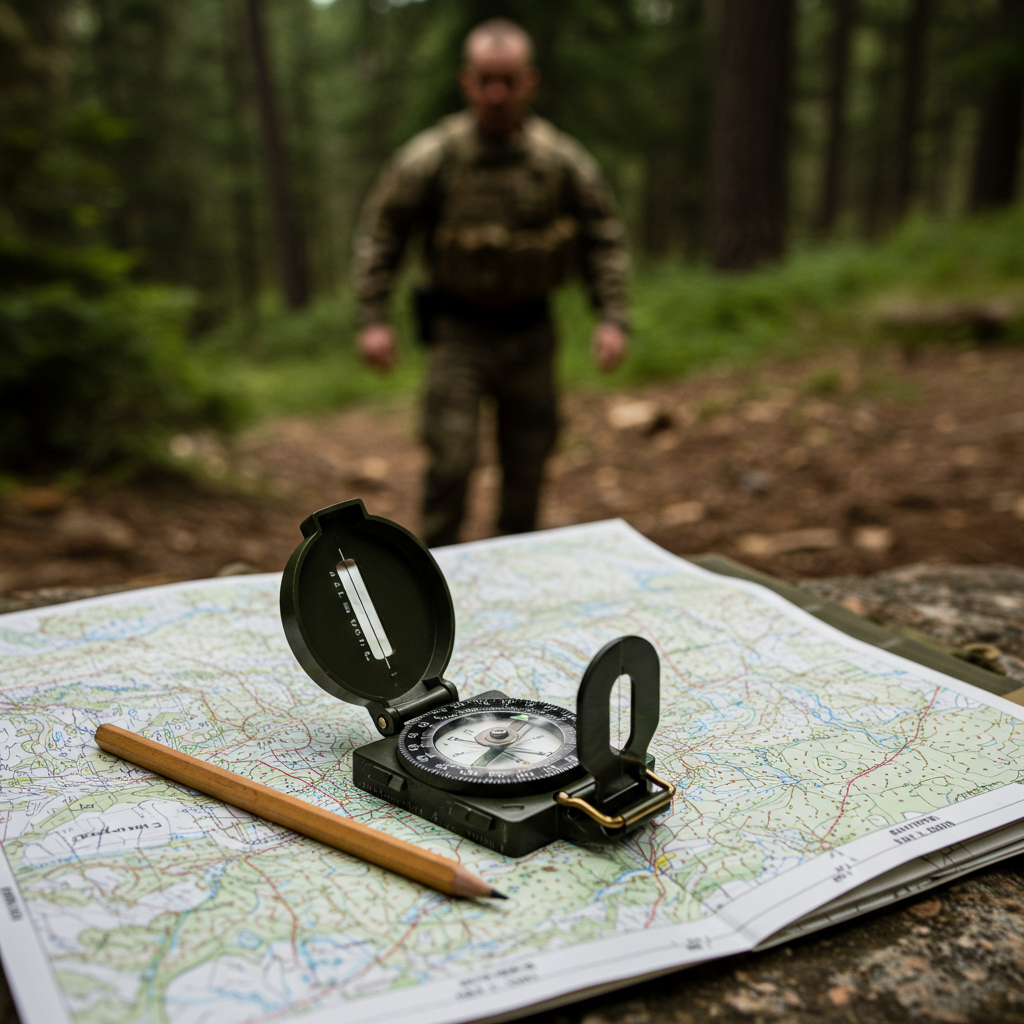
We train Rangers preparing for Ranger School, SAR teams searching for missing persons, military units honing their skills, and even recreational adventurers looking to elevate their outdoor abilities. But here’s the thing—if you love orienteering or geocaching, this is where you go to level up.
Why You Should Learn Real Navigation
You might love orienteering. You might be deep into geocaching. Or maybe you’re just someone who loves hiking off-trail and exploring untouched wilderness. But without proper navigation skills, you’re relying on luck rather than ability.
When you develop real navigation skills, the wilderness stops being an obstacle and becomes a map you can read with confidence. Every ridge, river, and contour line tells a story—you just need to know how to interpret it.

So, whether you want to win your next orienteering competition, take your geocaching to the next level, or navigate the wilderness with complete confidence, TSU’s navigation courses will get you there. We don’t just teach you how to follow a map—we train you to understand the land, interpret terrain like a second language, and move through any environment with precision.
The difference between guessing your way forward and knowing exactly where you stand isn’t just about convenience—it’s about self-reliance, safety, and the ability to take on any challenge. Phones die, GPS signals fail, and trails disappear, but when you have true navigation skills, none of that matters. You’ll know how to read the land, adjust for declination, pace your distance accurately, and navigate confidently—no matter where you are.
Join us this May or July and start seeing the outdoors through the eyes of an expert navigator. Because when you truly understand navigation, you’ll never feel lost again.
Common Navigation Mistakes (and How to Fix Them)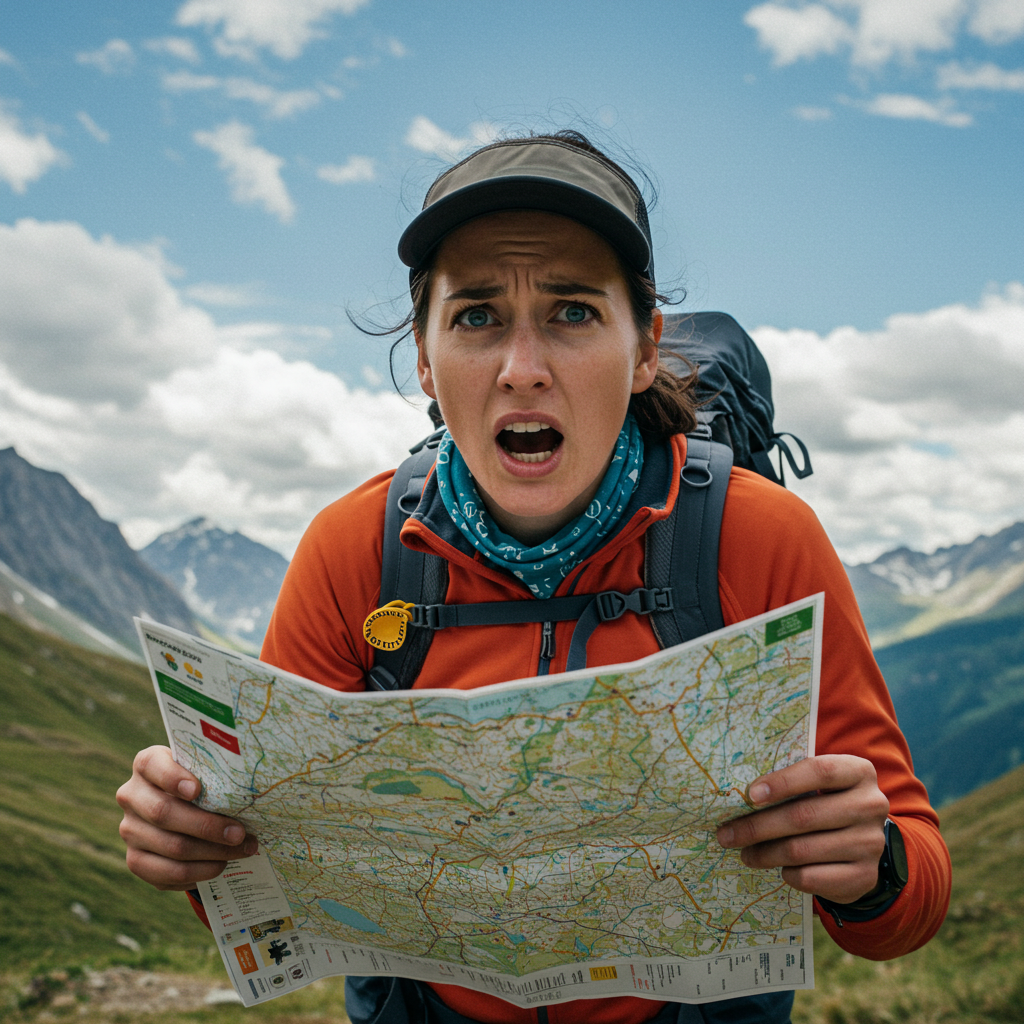
Even experienced outdoor enthusiasts make navigation mistakes that can cost them time—or worse, get them lost. Here are some of the biggest mistakes we see and how to correct them:
- Over-reliance on GPS – Many orienteers and geocachers get comfortable relying solely on GPS, but electronic devices can fail. Always have a paper map and compass as a backup, and know how to use them.
- Ignoring Terrain Features – The map isn’t just for checking trails; it tells you about elevation changes, water sources, and obstacles. Before setting out, analyze your route and identify key landmarks that will keep you on track.
- Losing Pace Count – Many competitors underestimate the importance of tracking their steps to measure distance accurately. Learning how to pace count properly gives you an edge in both competitive orienteering and real-world navigation.
- Not Adjusting for Declination – Magnetic north and true north aren’t the same. Failing to adjust for declination when using a
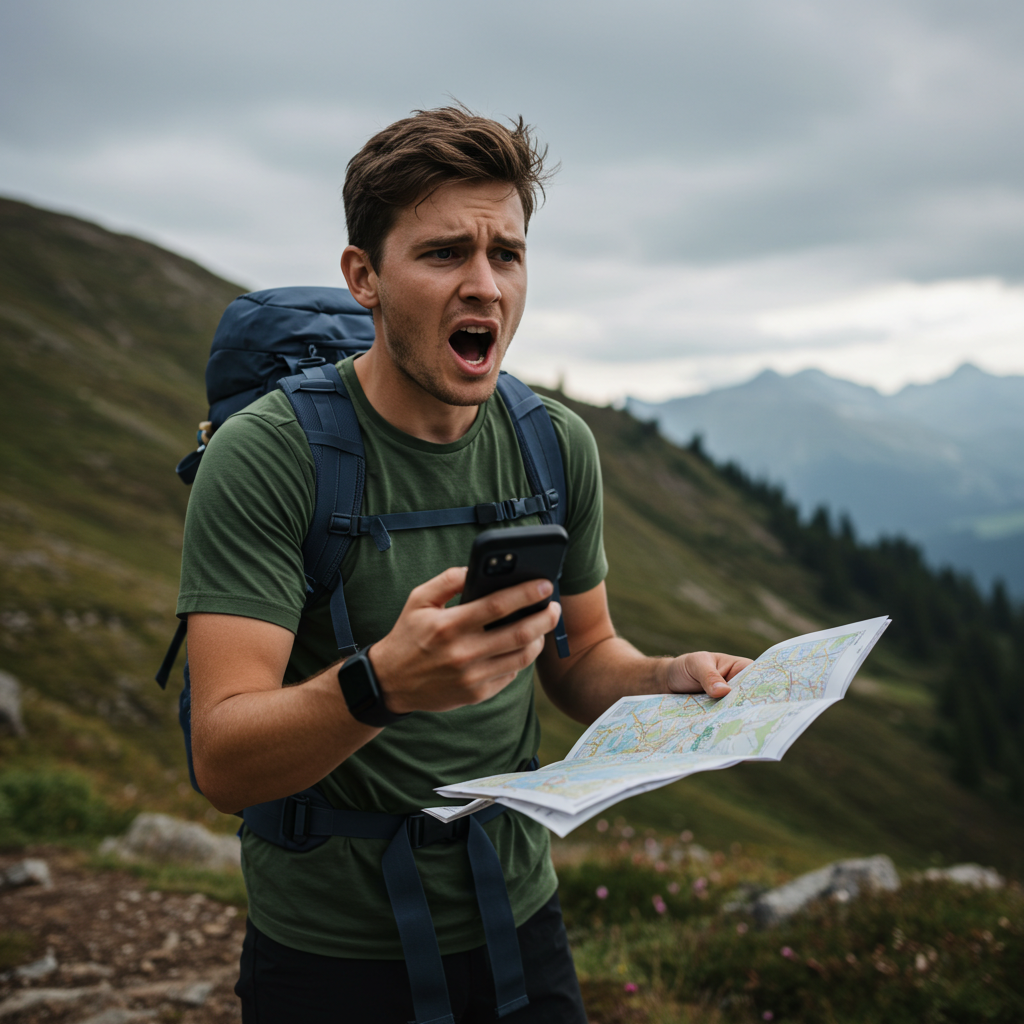 compass can send you miles off course. This is one of the first things we drill into our students at TSU.
compass can send you miles off course. This is one of the first things we drill into our students at TSU. - Rushing the Process – Navigation takes patience and careful assessment. Many people get disoriented simply because they move too fast without confirming their position. Stopping for 30 seconds to recheck your bearings can save hours of wandering.
When you train with us, we break down these mistakes in depth so you understand not just what to do, but why it matters in the field. You’ll develop the habits and precision needed to navigate with confidence, whether you’re tackling a high-stakes SAR mission, competing in an orienteering event, or hunting down a geocache in unfamiliar terrain. Navigation isn’t just about finding your way—it’s about making decisions that keep you moving in the right direction, no matter the conditions.
Master Navigation—Go Beyond the Game
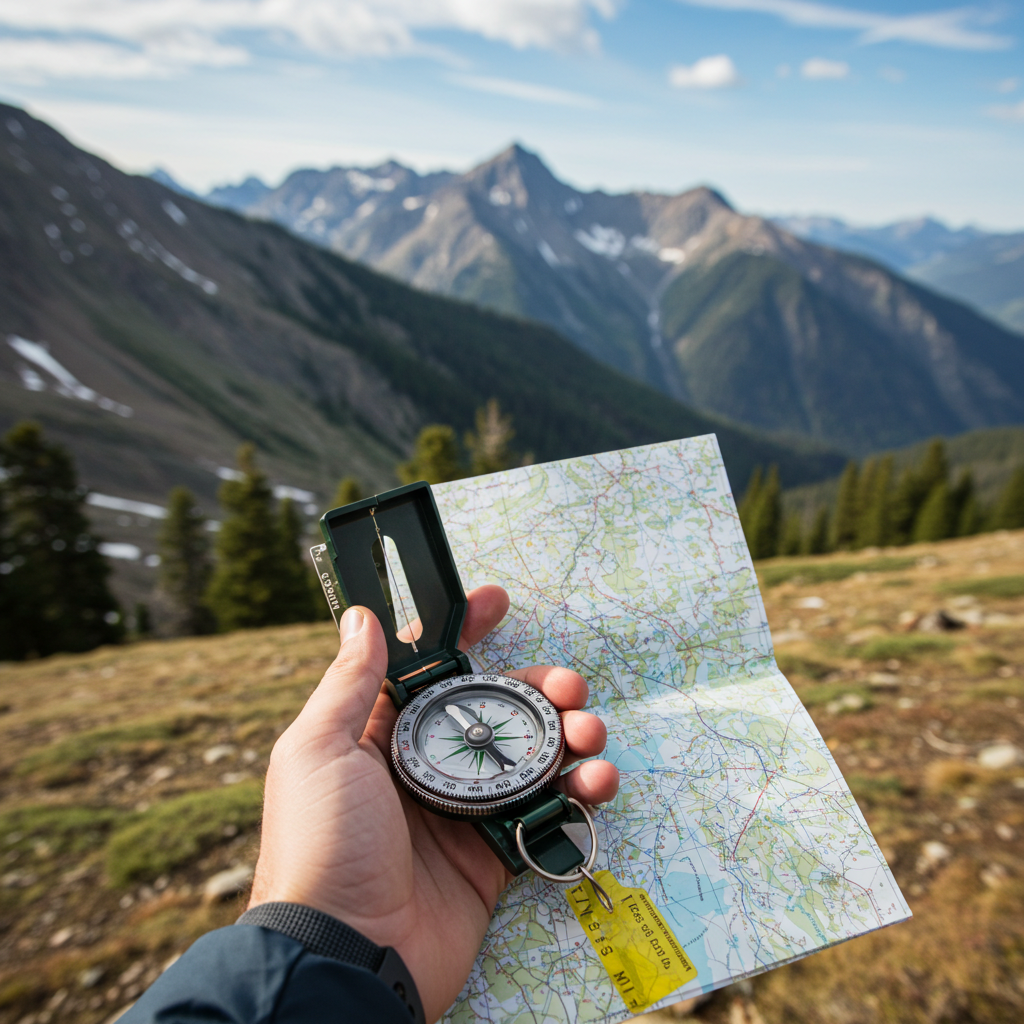
Navigation isn’t just a skill—it’s the key to moving with confidence in the outdoors. Whether you’re competing in orienteering, searching for geocaches, or pushing deep into the backcountry, your ability to read the land, interpret terrain features, and navigate without relying on technology sets you apart. The difference between wandering blindly and moving with purpose comes down to knowledge, preparation, and hands-on experience.
At TSU, we don’t just teach navigation as a game—we train you to apply it in real-world situations, where precision can mean the difference between getting where you need to go and getting lost. Our courses take you beyond simple map reading, giving you the tools to assess your surroundings, plan efficient routes, and make decisions that keep you on course in any environment.
3-Day Standard Navigation Course
3-Day Advanced Navigation Course
Join us this May or July, and take your navigation skills to the next level. When you learn to see the land for what it truly is—an open map waiting to be read—you’ll never feel lost again.
Please note: Our 3-Day Advanced Navigation Course is one of the few courses we offer that has a prerequisite. To enroll, you must first complete our 3-Day Standard Navigation Course, as we’ve found that most people know far less than they think they do when it comes to real-world navigation.
Additionally, while not required, we highly recommend taking our 3-Day Basic Survival Course and Wilderness First Aid Course, as the Advanced Navigation Course involves long-distance hiking over rugged terrain in unpredictable weather conditions. The survival and medical skills taught in these courses aren’t just useful—they provide a solid foundation for handling unexpected challenges that can arise in the backcountry.
About the Author
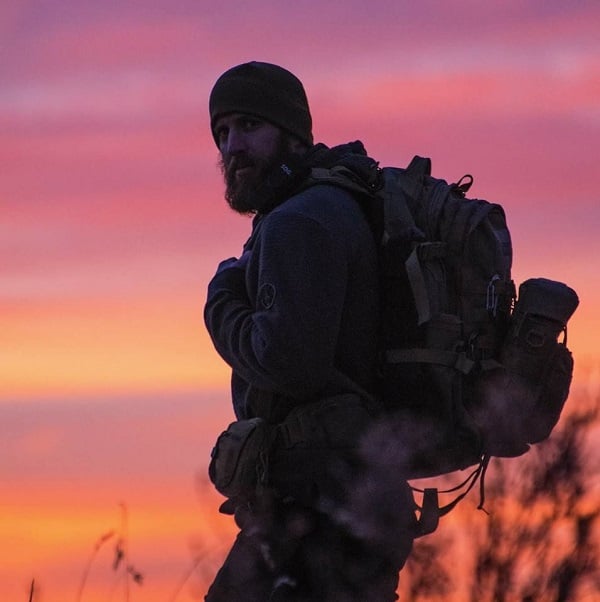 Jason Marsteiner is the founder and lead instructor at The Survival University, where he has dedicated his life to teaching practical survival skills that apply to both the backcountry and everyday emergencies. With years of hands-on experience in wilderness survival, land navigation, and emergency preparedness, Jason understands that true readiness isn’t about gear—it’s about knowledge and training.
Jason Marsteiner is the founder and lead instructor at The Survival University, where he has dedicated his life to teaching practical survival skills that apply to both the backcountry and everyday emergencies. With years of hands-on experience in wilderness survival, land navigation, and emergency preparedness, Jason understands that true readiness isn’t about gear—it’s about knowledge and training.
Born and raised in the mountains of Colorado, Jason’s background in wilderness survival was forged through real-world experience. He has trained extensively in austere environments, from the forests of Missouri to the mountains of Colorado to the desert of Arizona, and even in the jungles of Costa Rica, relying on minimal tools to survive. He holds certifications in Wilderness First Responder (WFR) and SAR tracking and has taught countless students how to stay alive when 911 isn’t an option.
Jason doesn’t believe survival training is just for hardcore adventurers—it’s for everyone. Whether you’re a day hiker, a city dweller, or a parent wanting to protect your family, the ability to act in an emergency can mean the difference between life and death. His goal is simple: to make sure you don’t freeze when it matters most and to get everyone back home safe.
When Jason isn’t teaching survival courses, he’s designing knives, mentoring, or simply spending time in the city just like you. Whatever he is doing, he is always honing the skills that turn fear into confidence.
Leave a Comment
Forged in the Wild: 50 Days That Transform Lives
Join a 50-day wilderness immersion in Colorado. Forge survival skills, mental grit, and a new you at The Survival University’s epic training ground.
Survival Training Near Me: Why the Best Might Be Worth the Trip
Discover why the best survival training might mean leaving the city. Explore The Survival University’s 4000+ acres and 20+ expert instructors!
